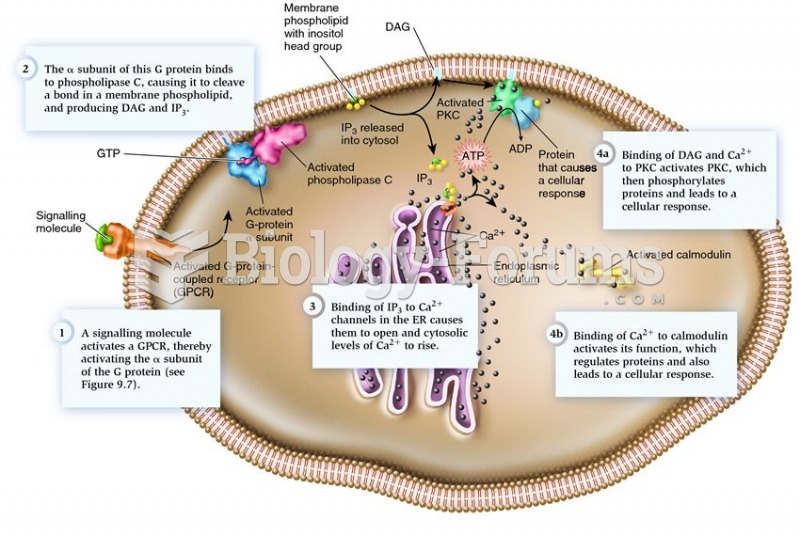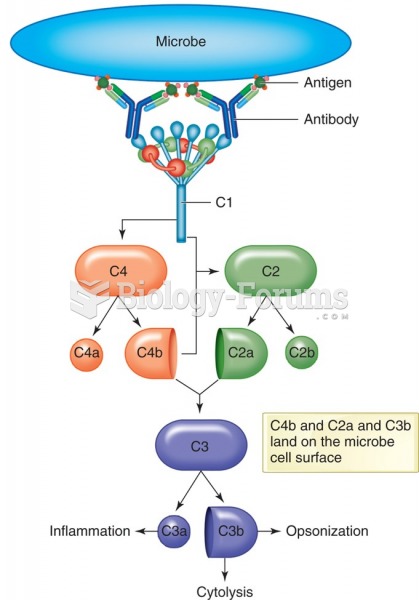|
|
|
It is believed that humans initially contracted crabs from gorillas about 3 million years ago from either sleeping in gorilla nests or eating the apes.
People about to have surgery must tell their health care providers about all supplements they take.
Everyone has one nostril that is larger than the other.
Hyperthyroidism leads to an increased rate of metabolism and affects about 1% of women but only 0.1% of men. For most people, this increased metabolic rate causes the thyroid gland to become enlarged (known as a goiter).
The toxic levels for lithium carbonate are close to the therapeutic levels. Signs of toxicity include fine hand tremor, polyuria, mild thirst, nausea, general discomfort, diarrhea, vomiting, drowsiness, muscular weakness, lack of coordination, ataxia, giddiness, tinnitus, and blurred vision.
 A signal transduction pathway involving diacylglycerol (DAG), inositol trisphosphate (IP3), and chan
A signal transduction pathway involving diacylglycerol (DAG), inositol trisphosphate (IP3), and chan
 The metabolic pathway that breaks down phenylalanine and its relationship to certain genetic disease
The metabolic pathway that breaks down phenylalanine and its relationship to certain genetic disease





